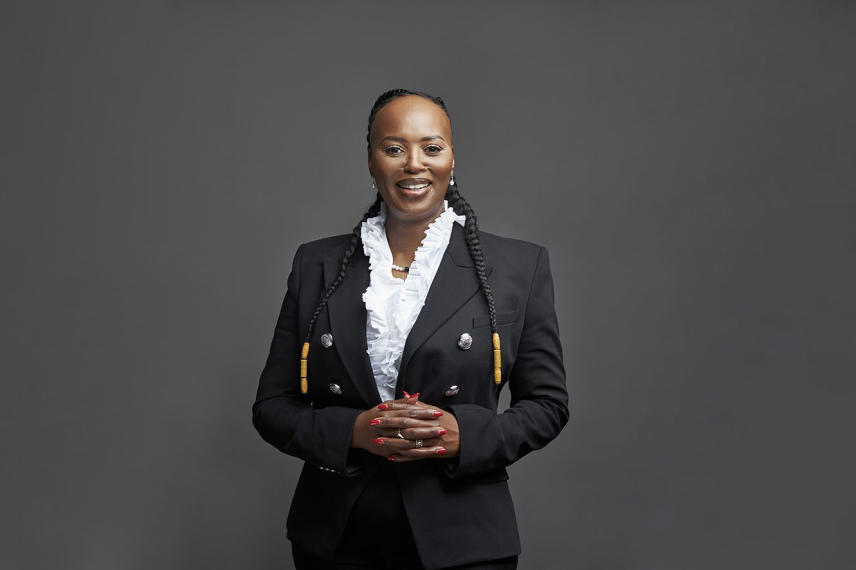Nonyaniso Swana, the founder of accounting firm Imani Business Advisory Services, which celebrates 15 years of excellence, shares her success tips
Take us back to your childhood. What attracted you to accounting as a career to pursue?
I was brought up in a small town in the Eastern Cape. I am the second of three children. Even though we were a nucleus of five (including the parents), our home was always full of extended family members. This brought a new set of people skills, which still serve me today.
Both my parents were entrepreneurs who started in retail and later got into property development and ownership.
Even though my psychology-major father had a keen eye for business and was a good judge of character, he struggled with reading the financial statements that his auditors prepared for him. When it was time for university registration, I had no clue what I wanted to study. He then suggested that I should study BCom because then, he would have someone close who could unpack the annual financial statements for him. I happily obliged.
Tell us about life before starting your business. Where did you work and what lessons did you learn that you implemented in your company?
After my junior degree, I did articles with PWC. I then got married the same year I completed my articles. I started a small accounting firm NNSWANA Accountants, which serviced local businesses, as well as individuals. It was more of a lifestyle business as it was meant to complement and not compete with my new family’s demands.
We then moved to Johannesburg and I went into corporate. Even though I was in finance, I was attracted to other management disciplines, such as productivity management, performance management, strategy formulation, balanced scorecard, and benchmarking. I fully embraced growth in areas that were not purely accounting. After four years in corporate, I was frustrated because I had stopped growing. I resigned, withdrew my pensions and went on to study a Masters in business administration full-time with Wits Business School. I loved how the degree empowered me to connect the dots between all the various management disciplines and encouraged me to think outside the box. I was ready to take on the world and knew beyond doubt that my time in corporate was up. Imani started with the purpose of addressing the gaps in financial management in the local government sphere.
What is the meaning behind your business name, Imani [Business Advisory Services]?
The name Imani is Swahili for faith. Incidentally, in Nguni, it means stands tall.
How big is your team and share your management style?
Since we started out, we have impacted the lives of over 50 young people. We are currently 23 people strong and are happy to have maintained this number even during the outbreak of Covid-19 and its aftermath.
My leadership style is one that encourages people to feel empowered in their respective roles, to feel free to contribute their ideas and look forward to coming to work every workday.
READ MORE: From A Mentor’s Desk: Pontsho Manzi
Do you believe in mentorship when it comes to career or business success? Do you have mentors who helped you on your business journey? Are you a mentor?
Yes, I do believe in mentorship. I also think sometimes, it happens organically and without being labelled as such.
My husband has been a great mentor for me to the extent that his company incubated Imani for over two years when we could not afford to rent our own office space.
I believe I indirectly mentor the young people who work for me.
Share with us some of the challenges and highlights you have experienced over the years as a businesswoman.
The challenge has been doors that remain closed to black women in our country. An example is we have a strong debt collection unit and would love to service the banks but there are no open platforms for accessing that kind of work.
What is your definition of success and do you feel you have achieved it?
My definition of success is to impact people’s lives positively. I believe I’m on my own path towards achieving that as we add value to both the clients we serve and the young people in our employment.
What hurdles do you think businesses, especially small businesses, experience that hinder their success, especially in the financial aspect? May you suggest solutions they might implement to keep them going?
Some of the biggest challenges in our era are access to finance and it doesn’t seem to be getting better. How we overcame it was by starting a business that was not very capital-intensive and grew from that space. Also, saving the money you make during prosperous times helps your business to navigate the leaner times better. Look after your credit history so that the banks are able to assist you when you need them the most.
READ MORE: Note From A Mentor’s Desk: Basetsana Kumalo
High-interest rates and load shedding seem to choke every industry, especially those operating on a small scale. How are you dealing with this as a company?
We are in the process of buying our property so we can move out of an office park. This will allow us to install alternative energy sources so that we’re not as badly affected by load shedding. Incidentally, the bond repayments are way less than what we’ve been paying to the landlord for rent and services.
Lastly, what are your success tips for young people?
To stay the course and be deliberate about the process that takes you forward in life. Don’t be distracted by the early successes of your peers, find your cadence and work with it.











